The week after Pentecost was the week for OpenStack in Berlin. After two years on the pandemic with many canceled events, the first in-person OpenInfrastructure Summit appeared in Berlin Congress Center (bcc), close Alexanderplatz.
Before this event started, the OpenInfra Board Meeting was planned for Whit Monday and as a full day event the preparation started at Sunday. Together with FnTech and local sound engineers a microphone system was installed and the room “Kontakthof” at Deutsche Telekom Winterfeldtstrasse 21 fits to serve the event next day with 40 participants.
Tuesday than the next big day: Opening of the OpenInfrastructure Summit 2022 with Jonathan Bryce and Allison Prise:
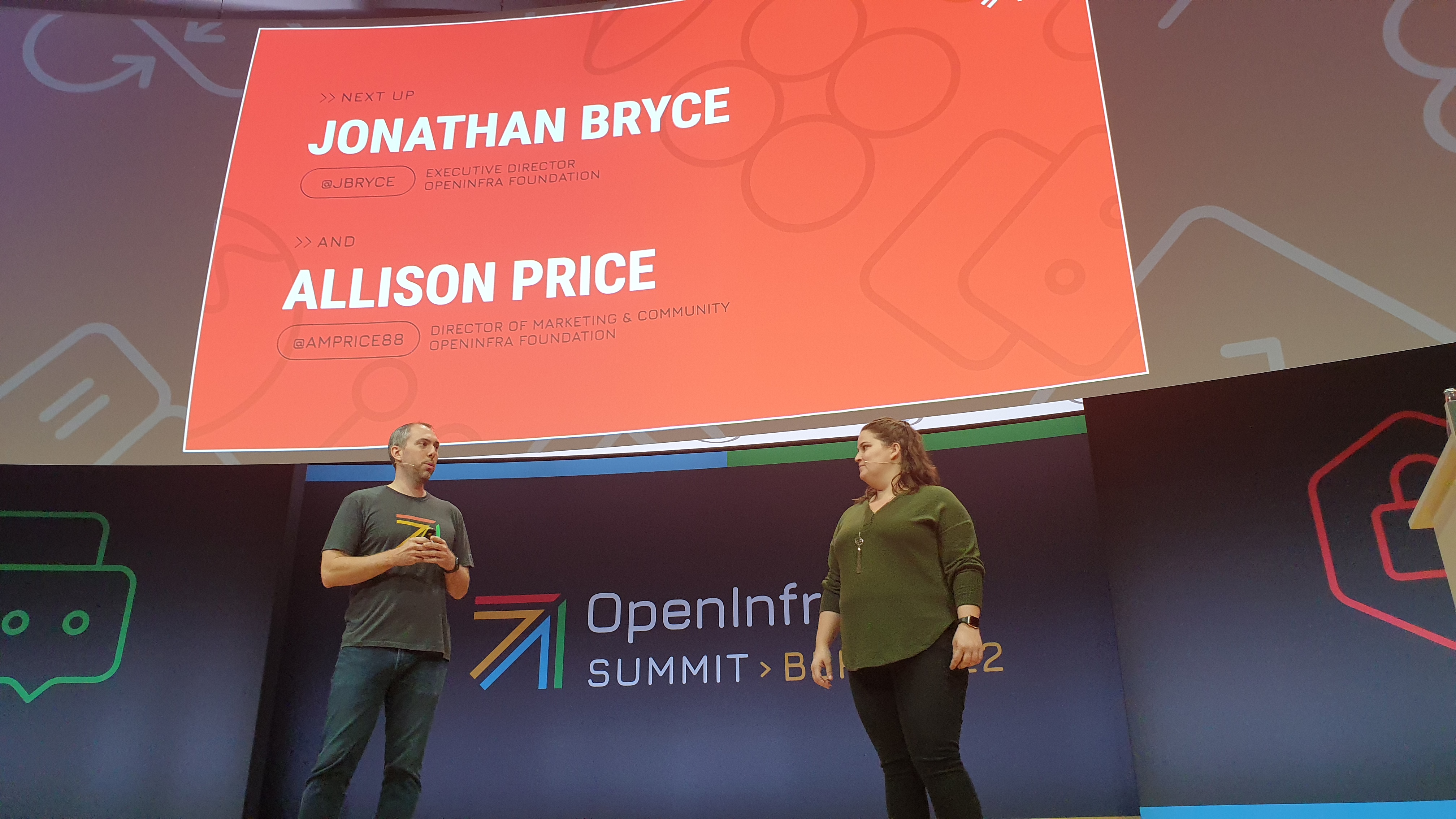
They welcomed the 800 participants from all over the world beside China, who has still travel restriction due the pandemic. The Foundation desided also to wear a mask inside the venue, which was actually not required anymore. But with participants from all over the world and a private event everyone can set the rules as they like and in hindsight it certainly wasn’t a bad idea. The bcc was a little bit extened by a tend and Mirantis Biergarten where cold drinks were served every afternoon. The weather couldn’t be better with >25 degrees, in the opposite of the 2018 Summit. Also the venue was tailored for this size, much better as The Cube far away from the city in big halls and few peoples.
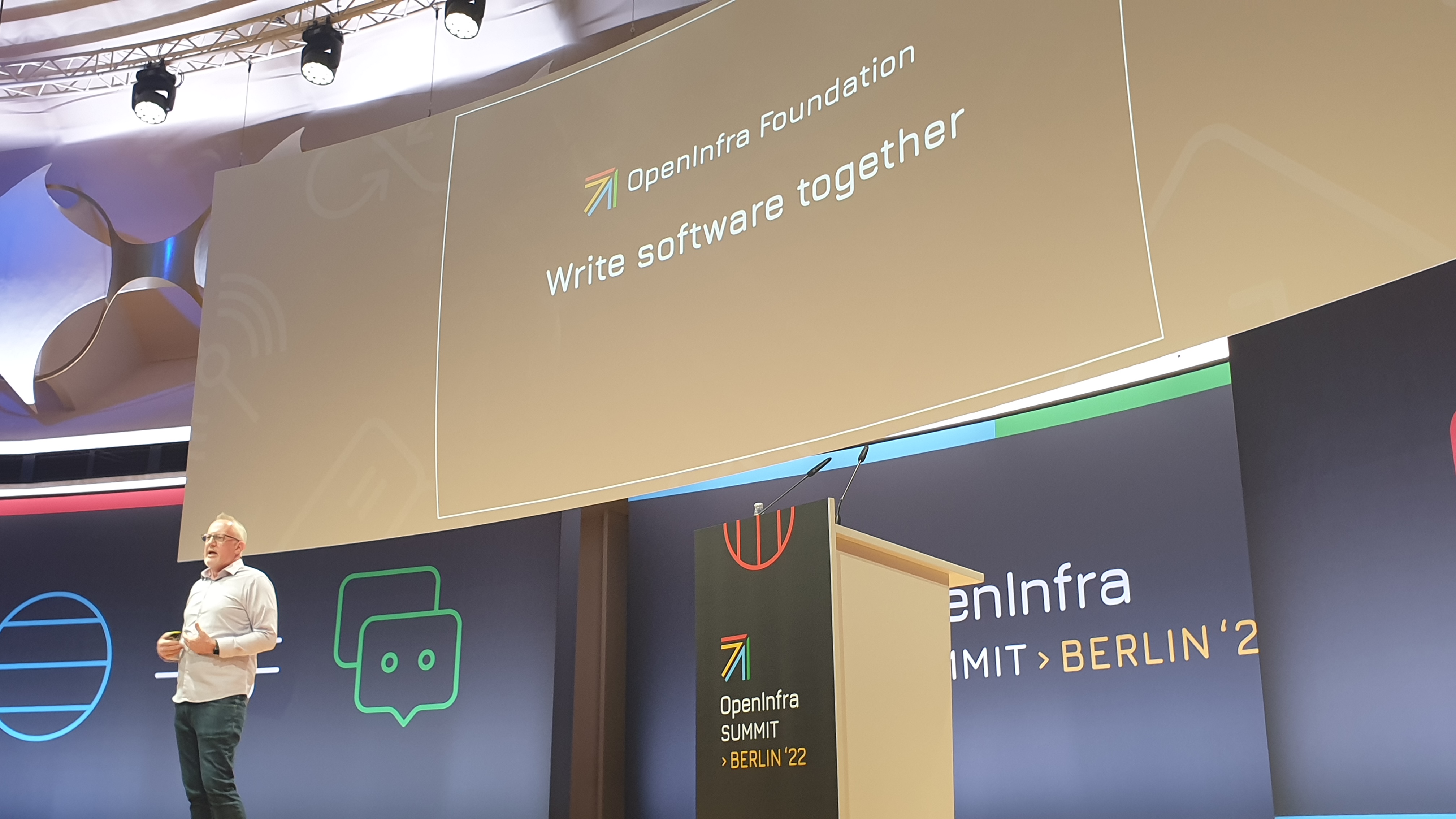
Mark Collier reminded the 10th anniversary of OpenStack, But that should be the last mention on it. Later no release information will be announced and no news on OpenStack are refered. That’s completely different to previous Summits, which was held close after a new OpenStack release. Now it goes broader in other software like Kata containers or Zuul, and other use cases like Confidential Computing (what Kata Containers is doing), High Performance Computing and 5G. The OpenInfra Foundation was described as:
A powerful network of companies writing software together
and
Collaboration across organizations works
I would agree on that, Unfortunately, one forgets the spare time contributor like me. It’s going in a direction where more professionalism is expected. Away from the bare shirts, towards the really big ones, to be mentioned as a community together with Kubernetes and Linux. But even these are nothing without people who sacrifice their free time and money for the project.
Another new Gold Member joined the OpenInfra Foundation: Bloomberg.

A commitment to Open Source with many code can be found on https://github.com/bloomberg/ or the web site TechAtBloomberg
Next keynote speach after the Kata Container project update comes from Canonical. OpenStack enters the Slope of Enlightment, was said, this is nearly the Plateau of Productivity. I would see this since nearly 4 years, when many companies left the project after a hot time of innovation. The next big thing was LOKI, where many breakout sessions followed with this topic. On canonical there are already products for a long time like MAAS or JUJU, which is intentional similar to Kubernetes, but completely under-rated. Nevertheless the breakout session was full.
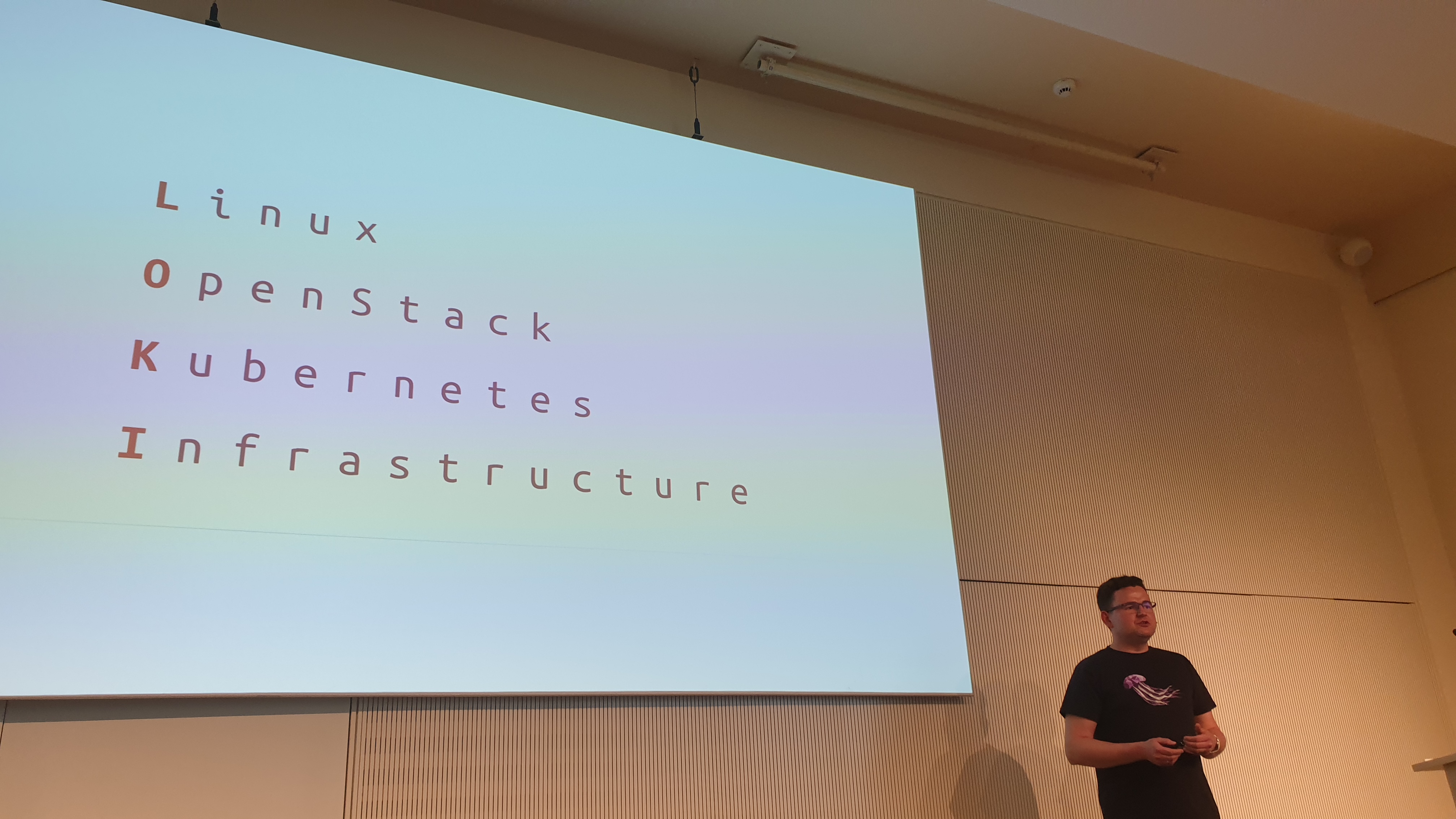
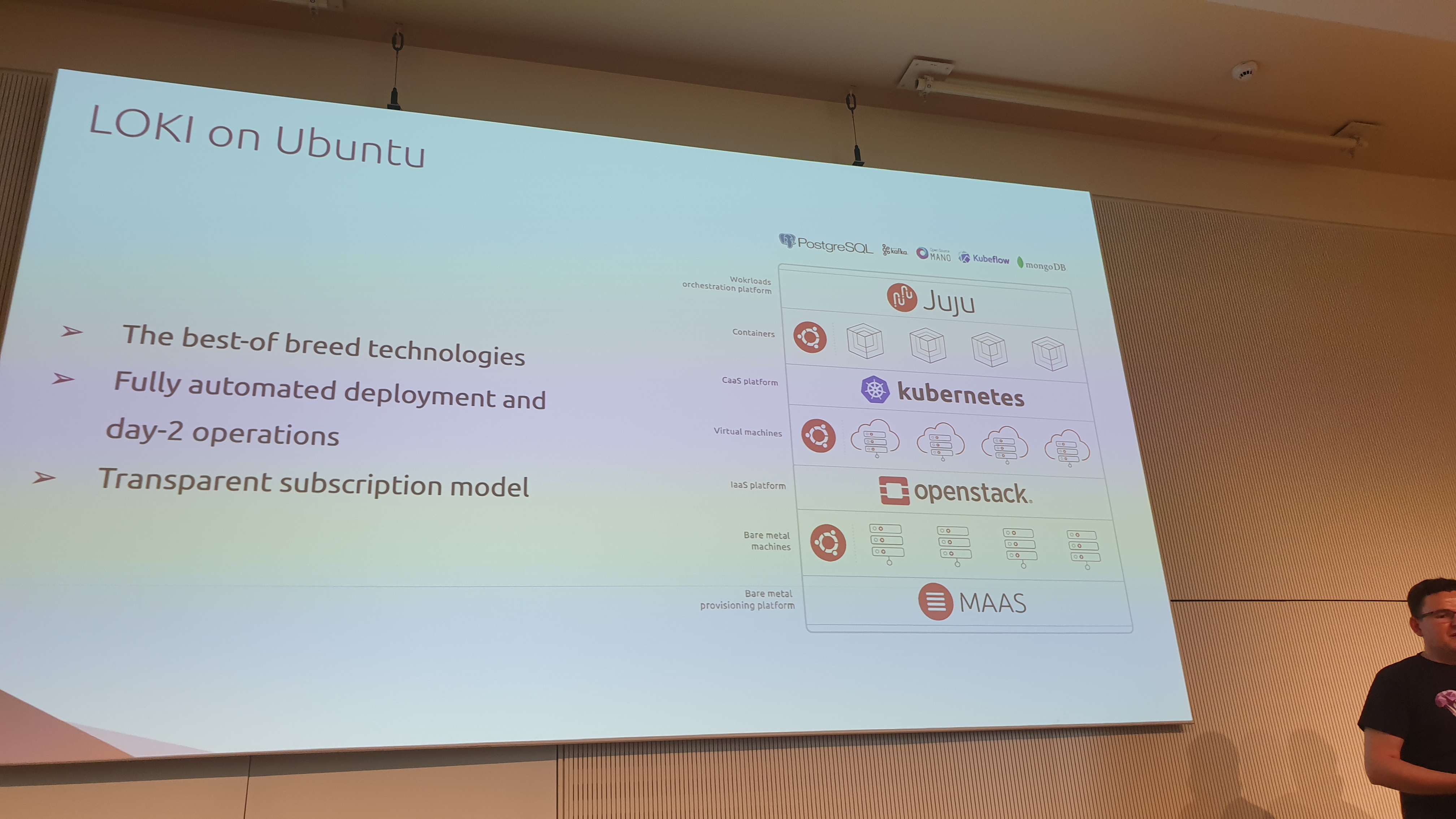
Back to Keynote. Dr. Franziska Brantner, Federal Ministry for economic affairs and climate action was interviewed on stage to Green Computing, This topic will deep dived later. And Daniel Melin, Swedish Tax Agency, Addressing Digital Sovereignity with OpenStack and Kubernetes. There came more sessions and discussions later by Kurt Garloff, who work on Sovereign Cloud and Gaia-X

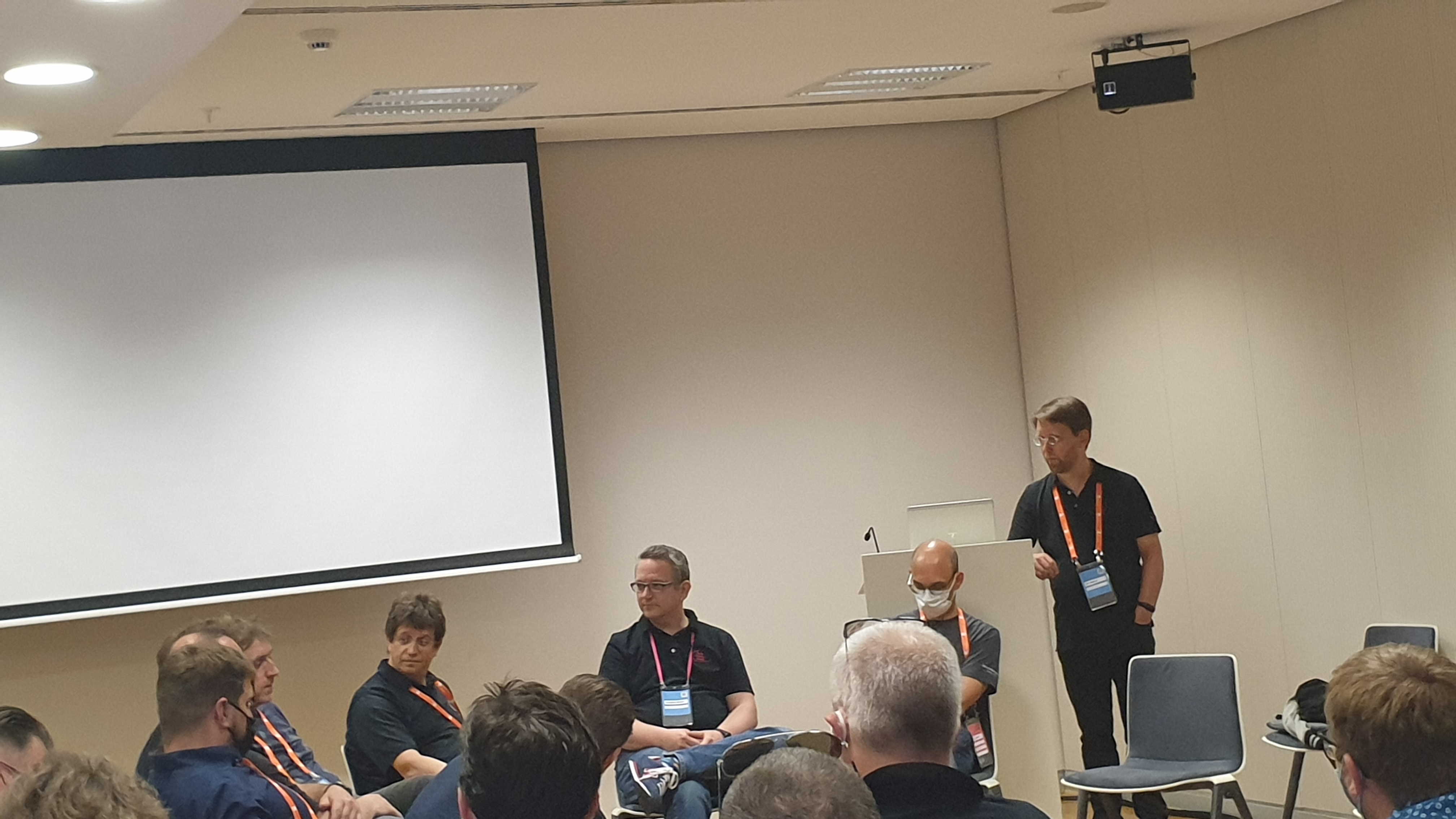
Andreas Falkner from T-Systems/OpenTelekom Cloud showed something with ants.
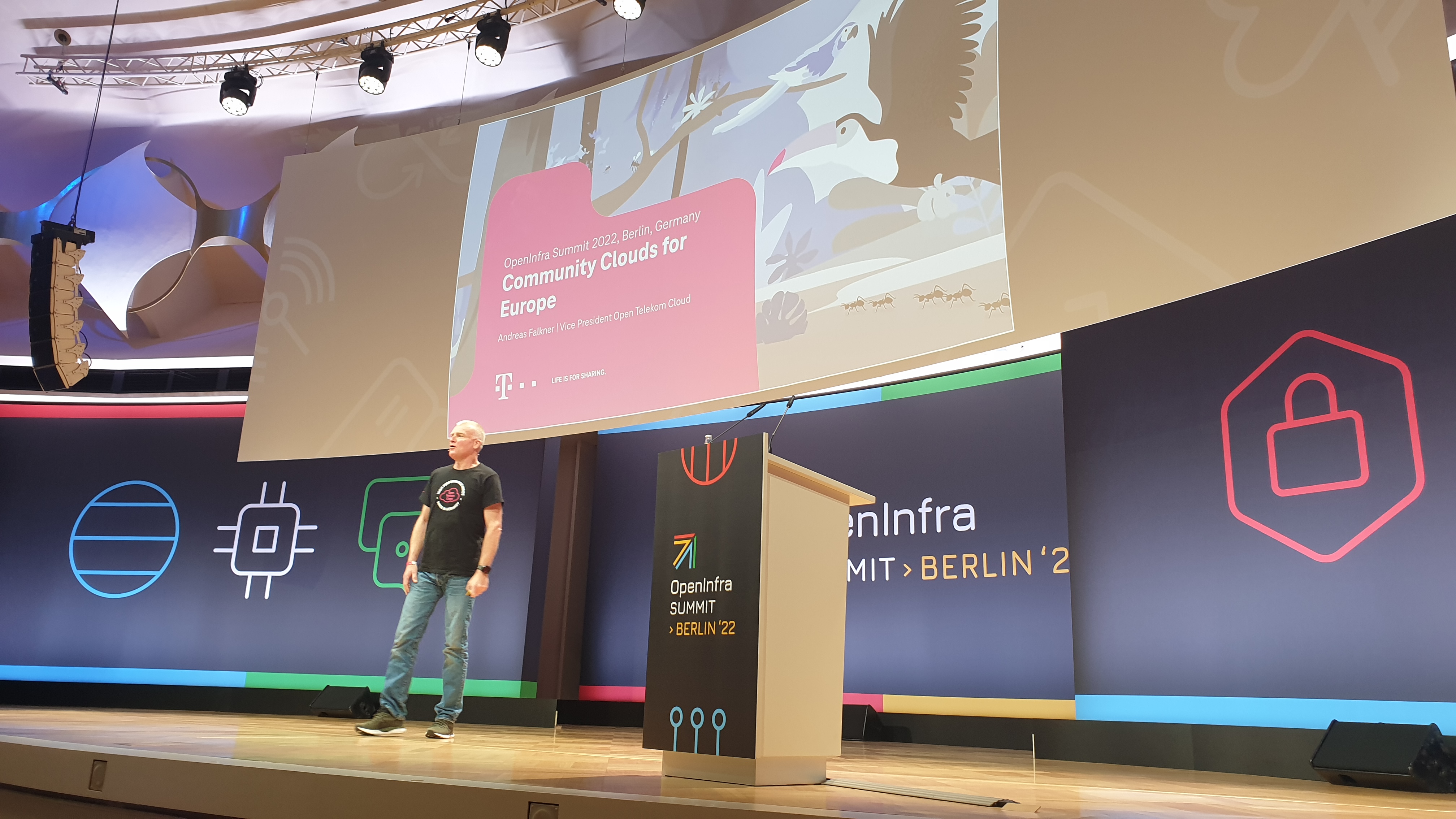

You are empowering our Public Cloud.
We are the Eco System but our clients are a key part of it
He pushed action more in customer direction, which might be a little bit too easy, if not all employees are working on the customer front and many feature requests are very long running tasks.
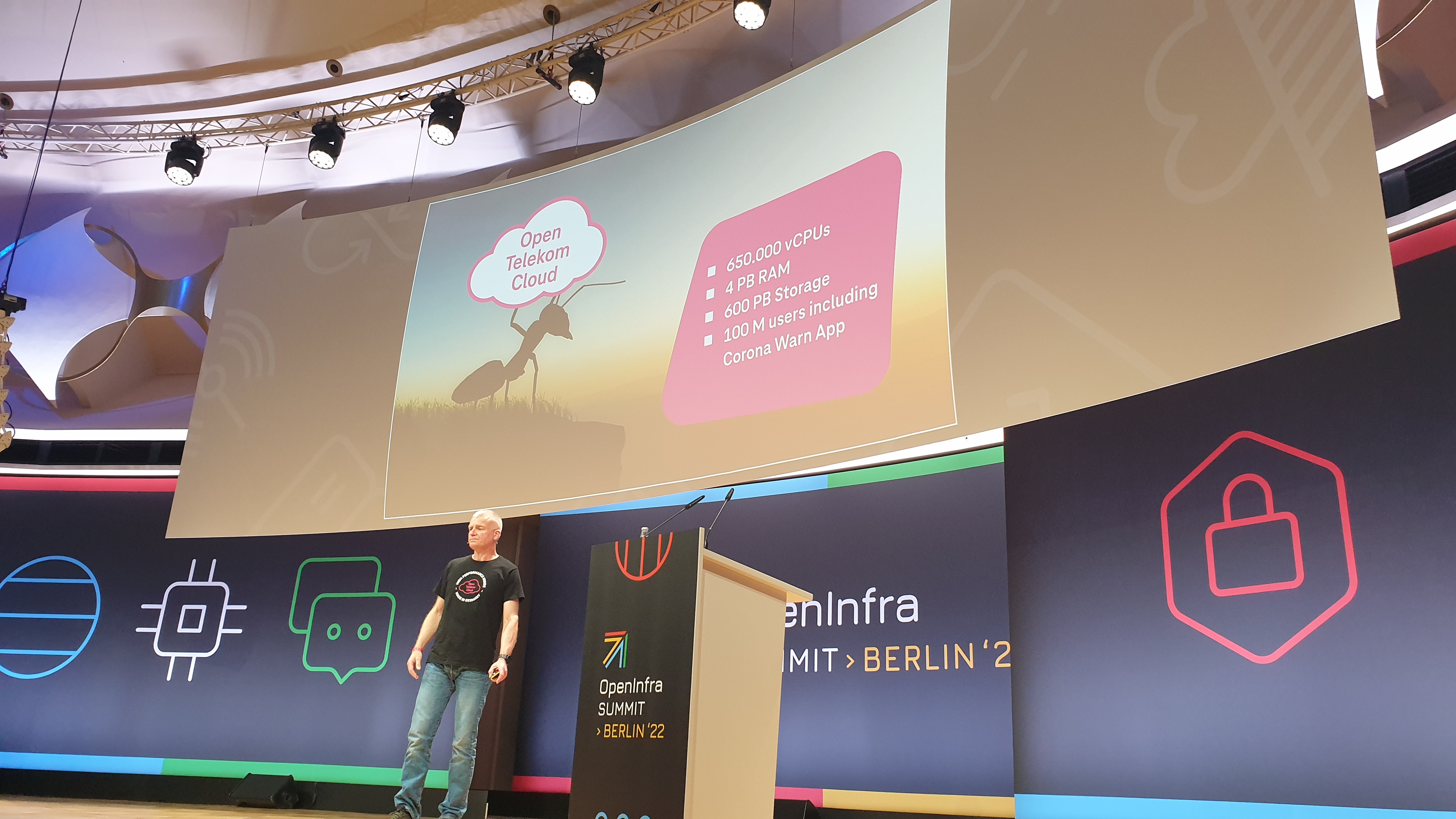
OTC metrics:
- 650000 vCPU (sometimes flavors are sold out on various AZ)
- 4PB RAM
- 600 PB Storage
- 100 M users incl Corona Warn App - this would be questionable, if this user are really OTC customer. Possibly the Ministry of Health is one customer.
Swiss Open Community Cloud was mentioned as a public cloud with “invite only”, so it’s a public private cloud. Deeper information were missing as most of the sessions of the Summit, but I didn’t visited the booth to answer such kind of questions.
2 things were explained in Forum sessions: The OTC project cleanup program.

And the new OTC documention based on Sphinx. At least a good place to gether feedback by the customer.

Day 1 ends on a scavenger hunt in the middle of Berlin, organized by RDO. Search for landmarks and solve puzzles. Not the easiest way to explore Berlin, at least 50 stacker had fun.

[pagebreak] Day 2 keynote started with community metrics presented by Thierry Carrez:


For sure, lovely numbers, but verified on Stackalytics that is an all-time summary. For example, Deutsche Telekom was also on Marc Collier’s list of contributer companies, but the last commit was 6 years ago. So that are historical data.
Next up on stage was Kendall Nelson & Archana Kumari to describe Project Onboarding Program and Mentoring Program, a very long running program on the OpenStack community to connect newcomer.

The most interesting Keynote session followed up: Stuart Grace from BBC R&D explained Building Environmental Dashboards for OpenStack.


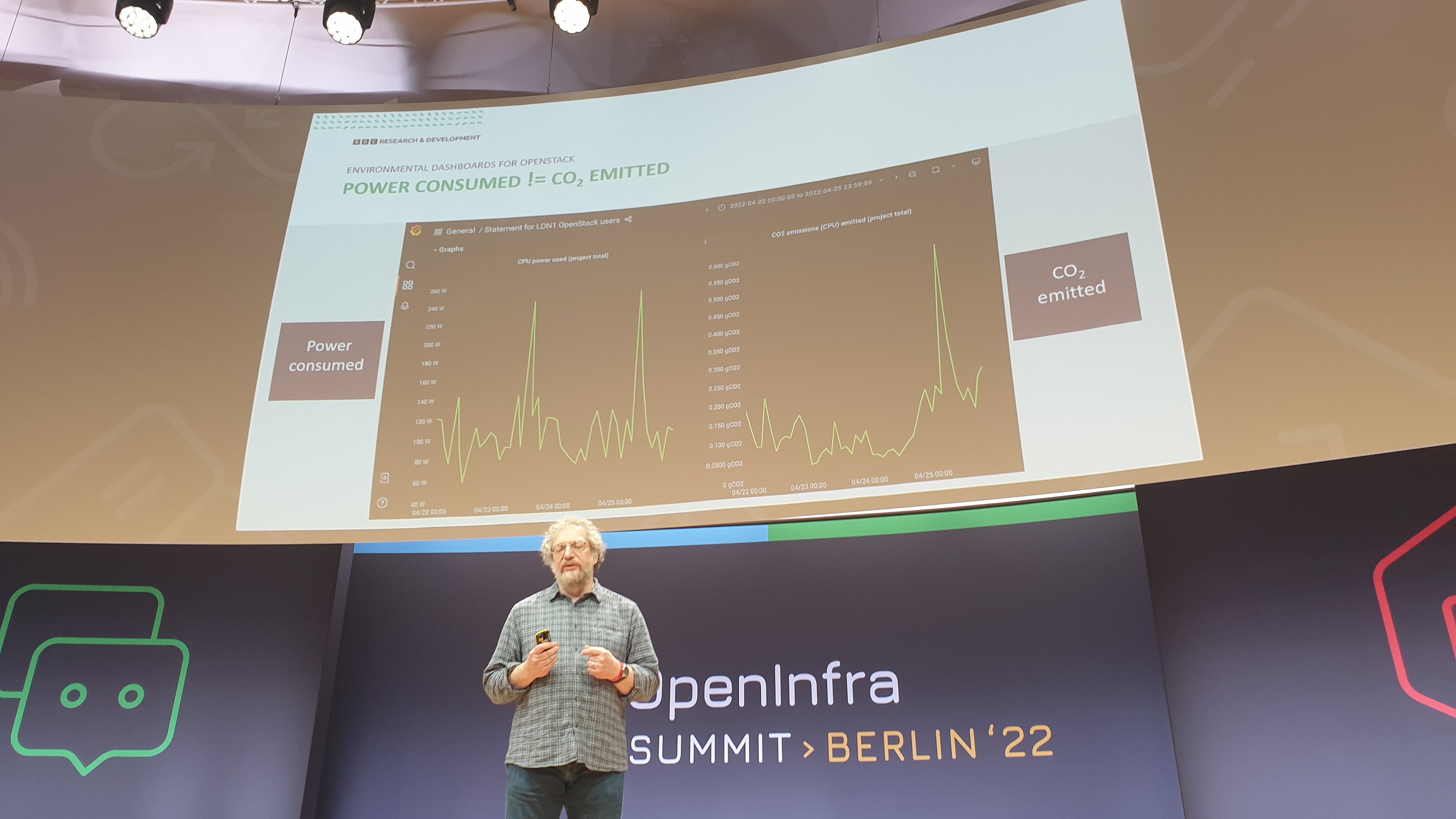
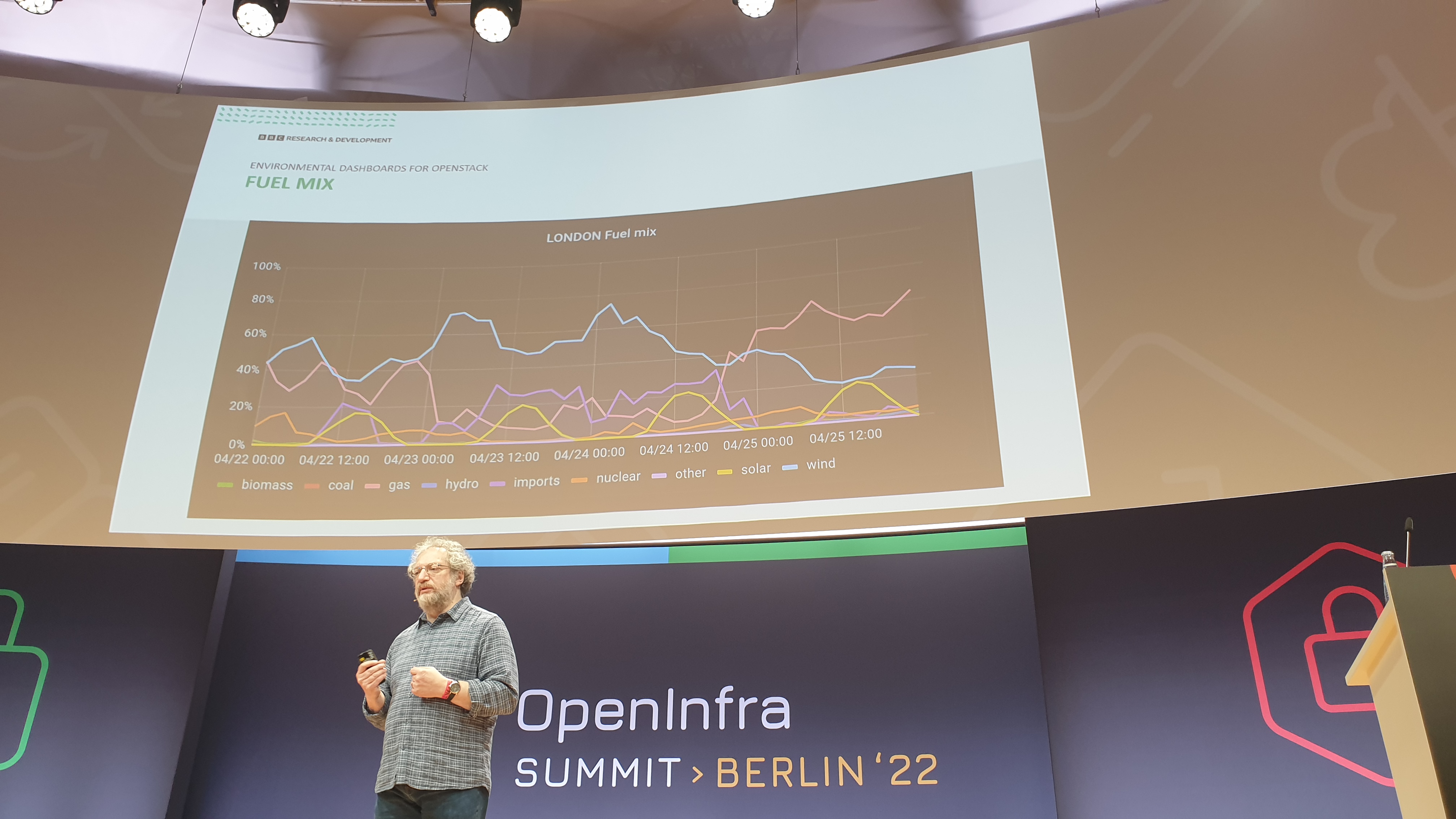
Carbon Intensity API is a service in UK, where you can connect your OpenStack cloud to identify which workload produced which carbon output. This topic continued from the speach the day befor from Dr. Franziska Brantner and is connected to the AWS power consumption report, a new part of the billing service. But it steps a bit further, because it makes prediction on what time you can useful running your workload to save carbon expulsion. The full story is described about Estimating Power Usage is described in BBC R&D blog and the fun fact: I had similar in our backlog for years.
Similar topic is the ECMWF with numerical weather prediction, found also on Github
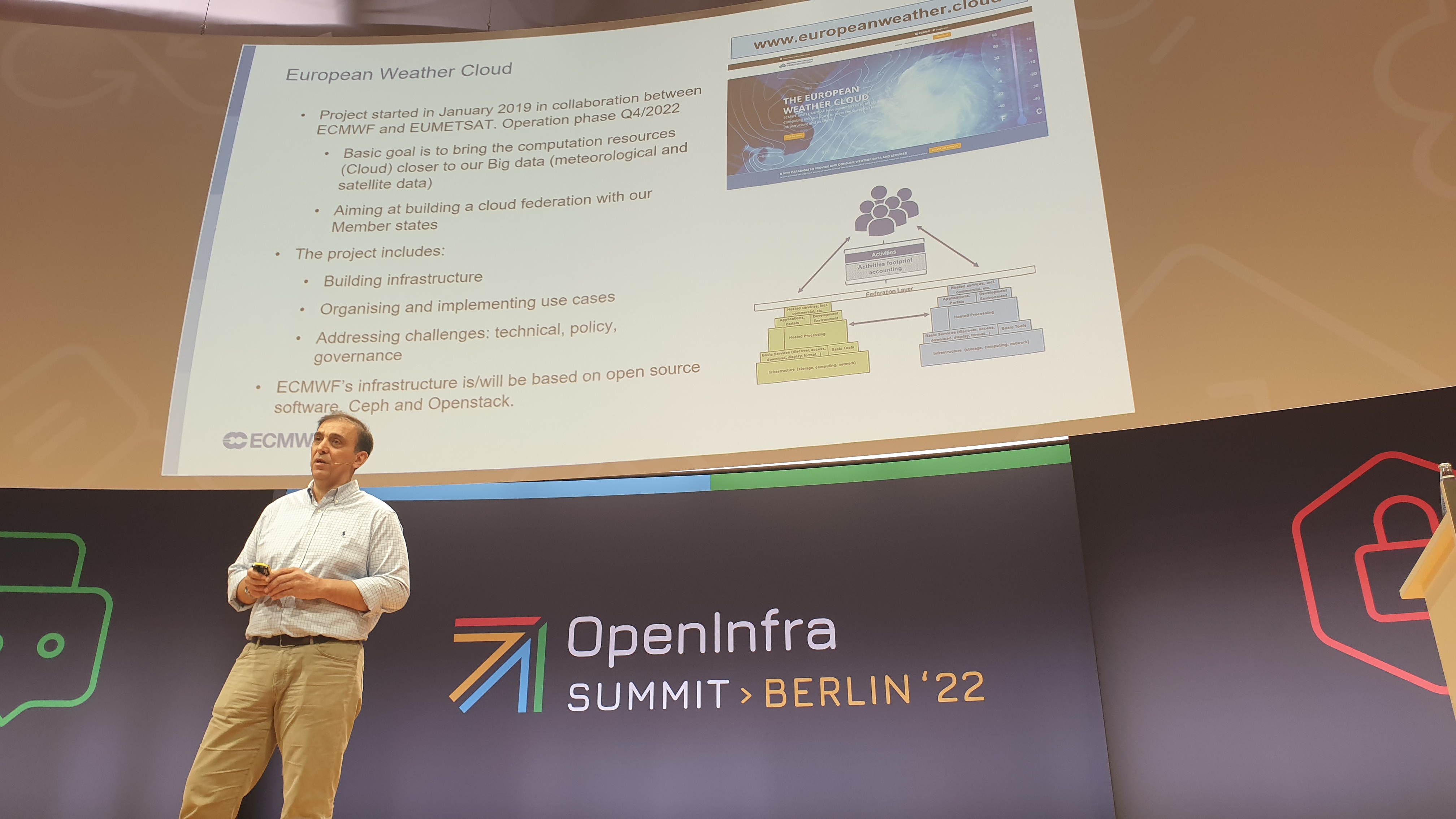
And all together is covered in Scientific / HPA Sig


Next topic was 5G in the StarlingX project update

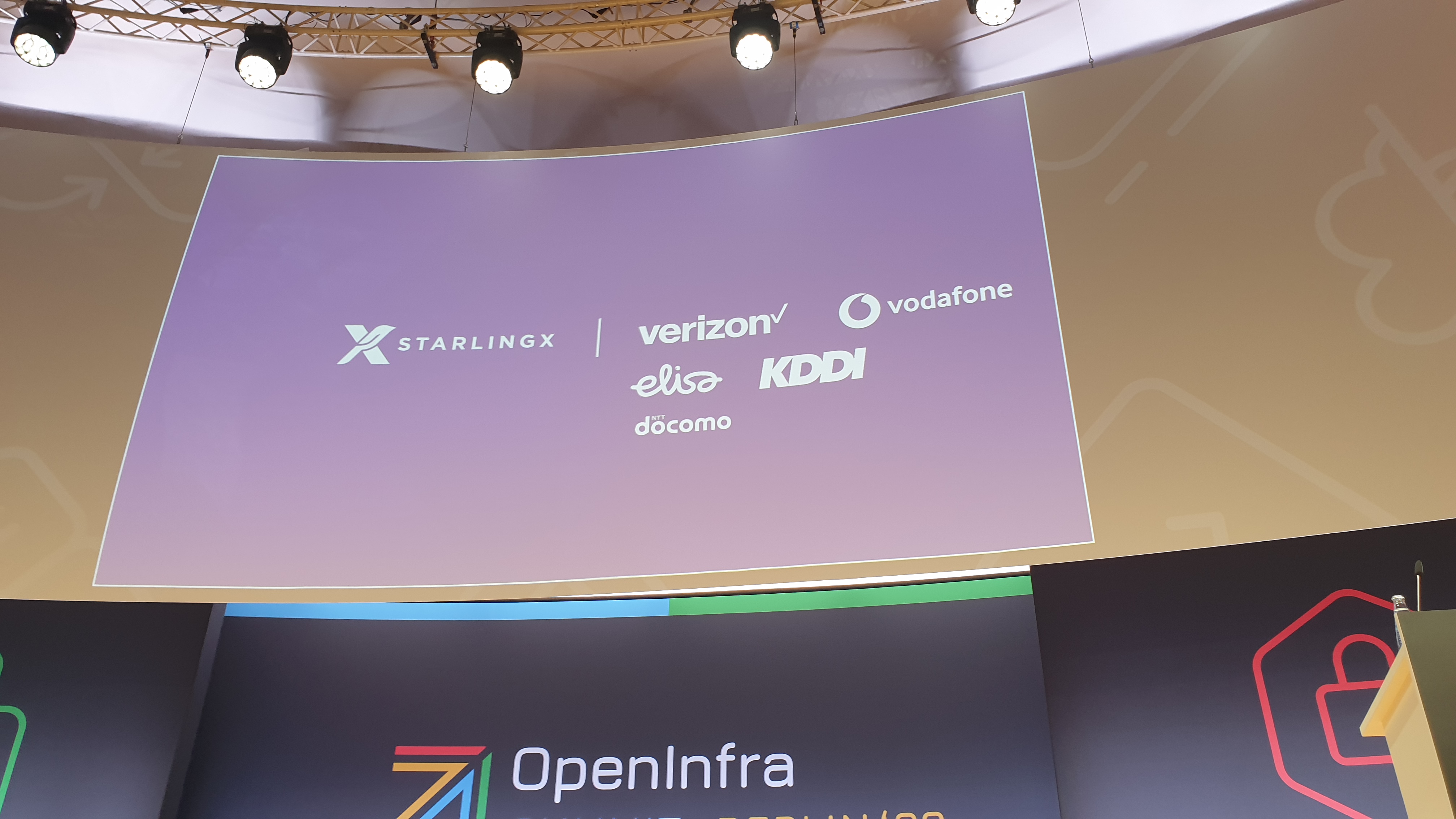
And also a very interesting presentation was Fungible DBU, because we know NVidia to use Graphic CPU for AI/ML computing, but what makes more sense to use a plain Data CPU. Will see if this company goes to the stock exchange or will bought by a bigger company.


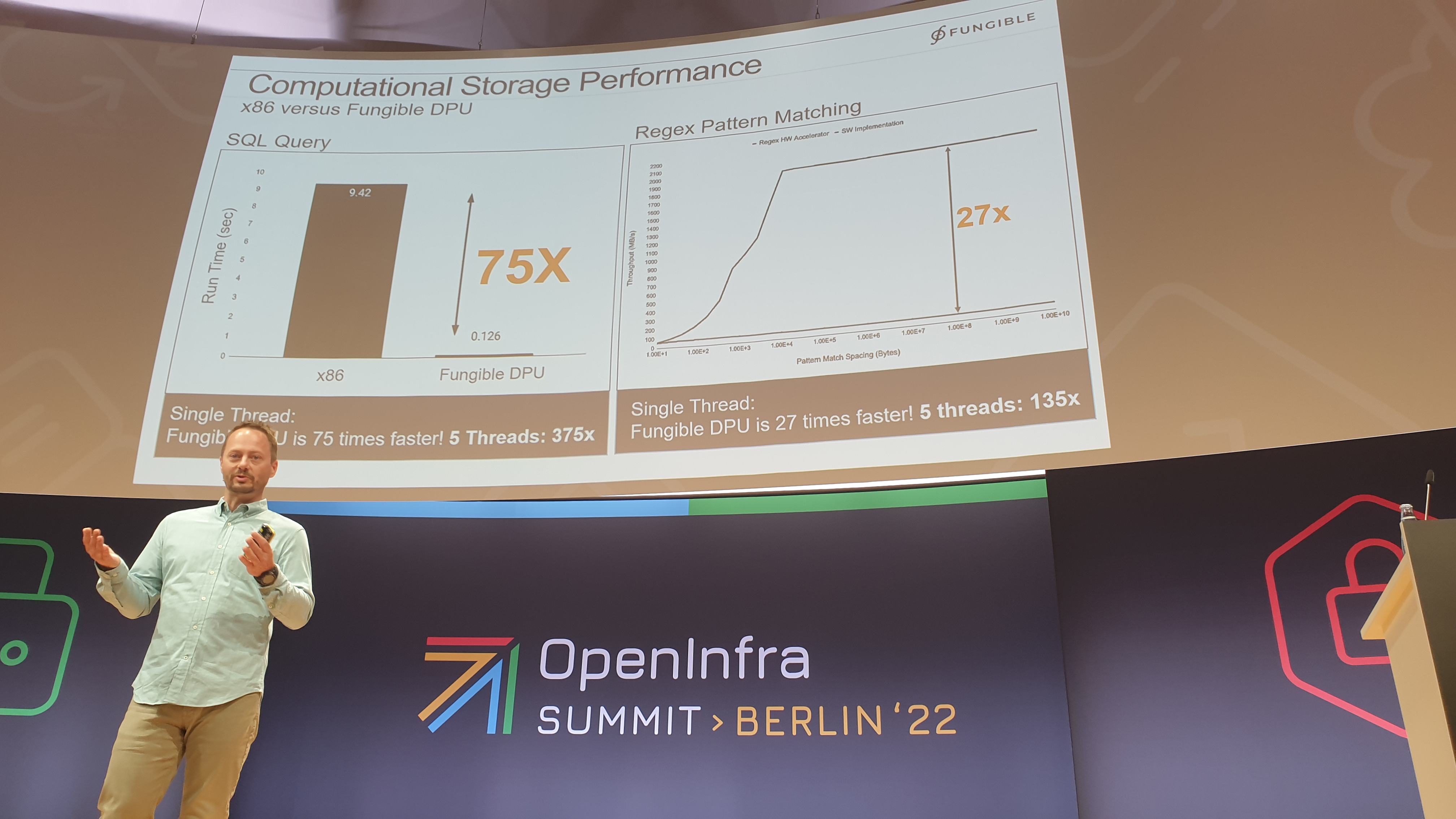
Last Keynote session comes from Volvo and Zuul. For sure, one of the best dressed speaker :-)
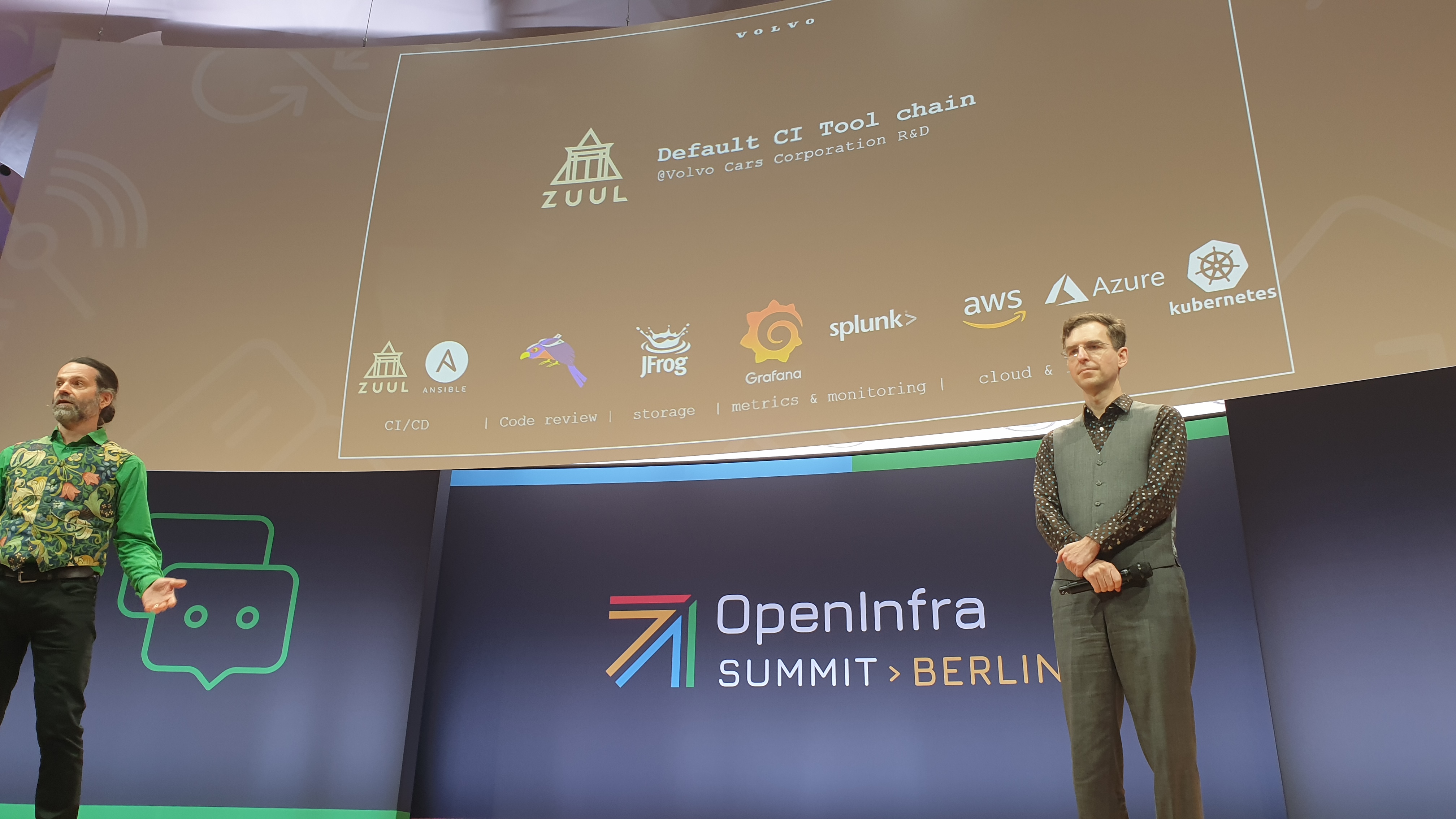
All Keynotes are uploaded in bad audio and bad cuts on Youtube
German Press Links:
https://www.heise.de/news/OpenInfra-Summit-Gemeinsam-die-Cloud-weiter-oeffnen-ein-Bericht-aus-Berlin-7133705.html https://www.heise.de/news/OpenInfra-Summit-Die-naechsten-10-Jahre-Wissenschaft-und-Daten-7135525.html https://www.linux-magazin.de/news/openinfra-summit-dashboards-fuer-den-co2-ausstoss/ https://www.linux-magazin.de/news/openinfra-summit-digitale-souveraenitaet-im-fokus/
[pagebreak]
Friday was the day for OpenStack Ops Meetup - a community event, also hosted by Deutsche Telekom in Berlin, Pascalstrasse 11
This event was overbooked. We started planning with around 20 participants, after the first announcement we had 37 paid registrations. So we tried to change the meeting room in Winterfeldtstrasse, which was not possible. Then I had Pascalstrasse as a backup with a 50 persons room, which fits also not the 57 interests in the meantime. After the room preparation I got 81 seats for 70 registrations. 62 people showed up - 59 participants and 3 orga.
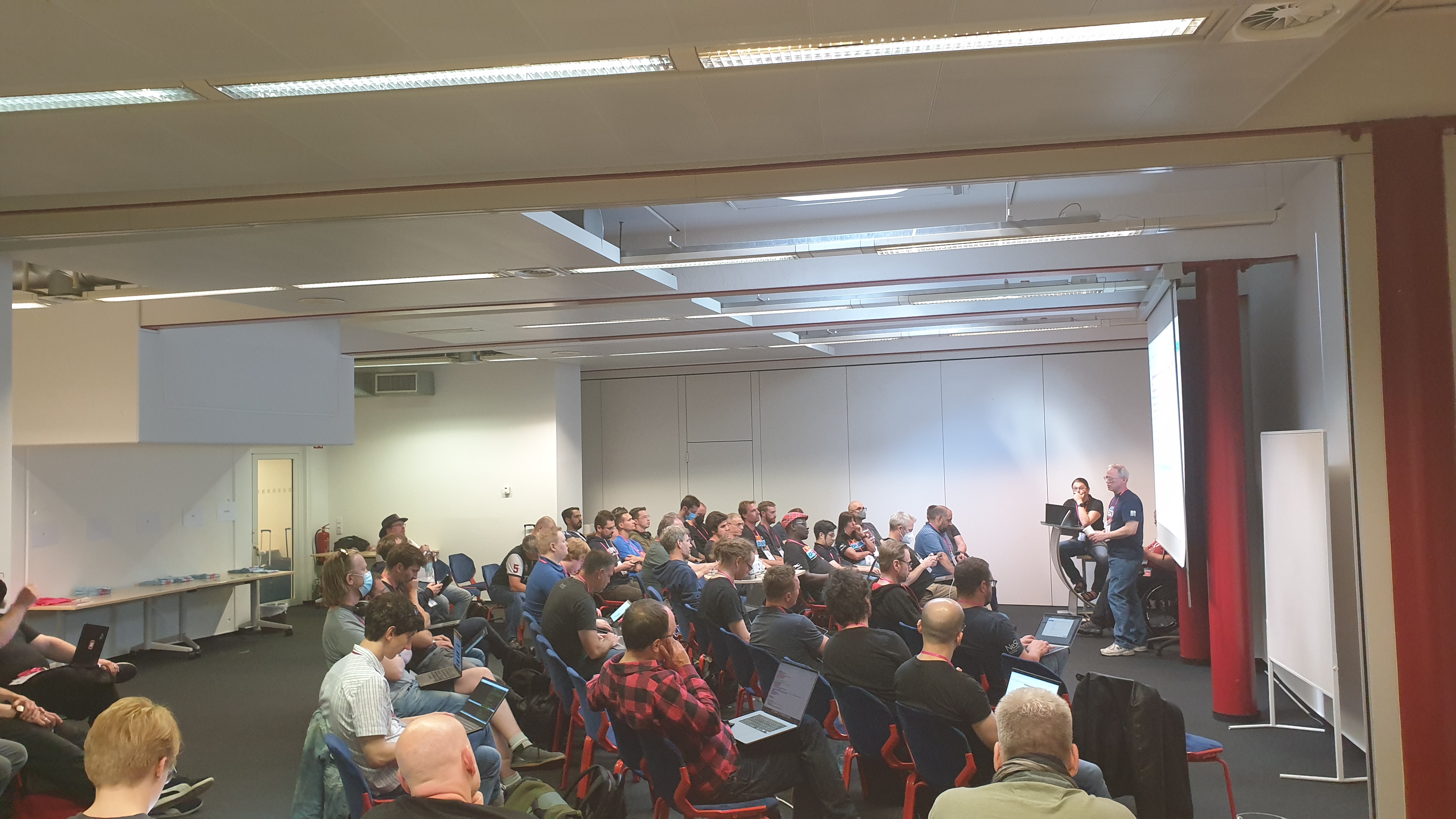


We had enough space, options for 4 additional breakout rooms (which was not used), sponsored breakfast, sponsored lunch, merchandisings and I brought enough of my own things like cups, milk, sugar. Everything so that the participants feel comfortable and they lack nothing. It was a very successful and fun event, which ended at the Paulaner in the Spreebogen. That was the end of the OpenStack week.
